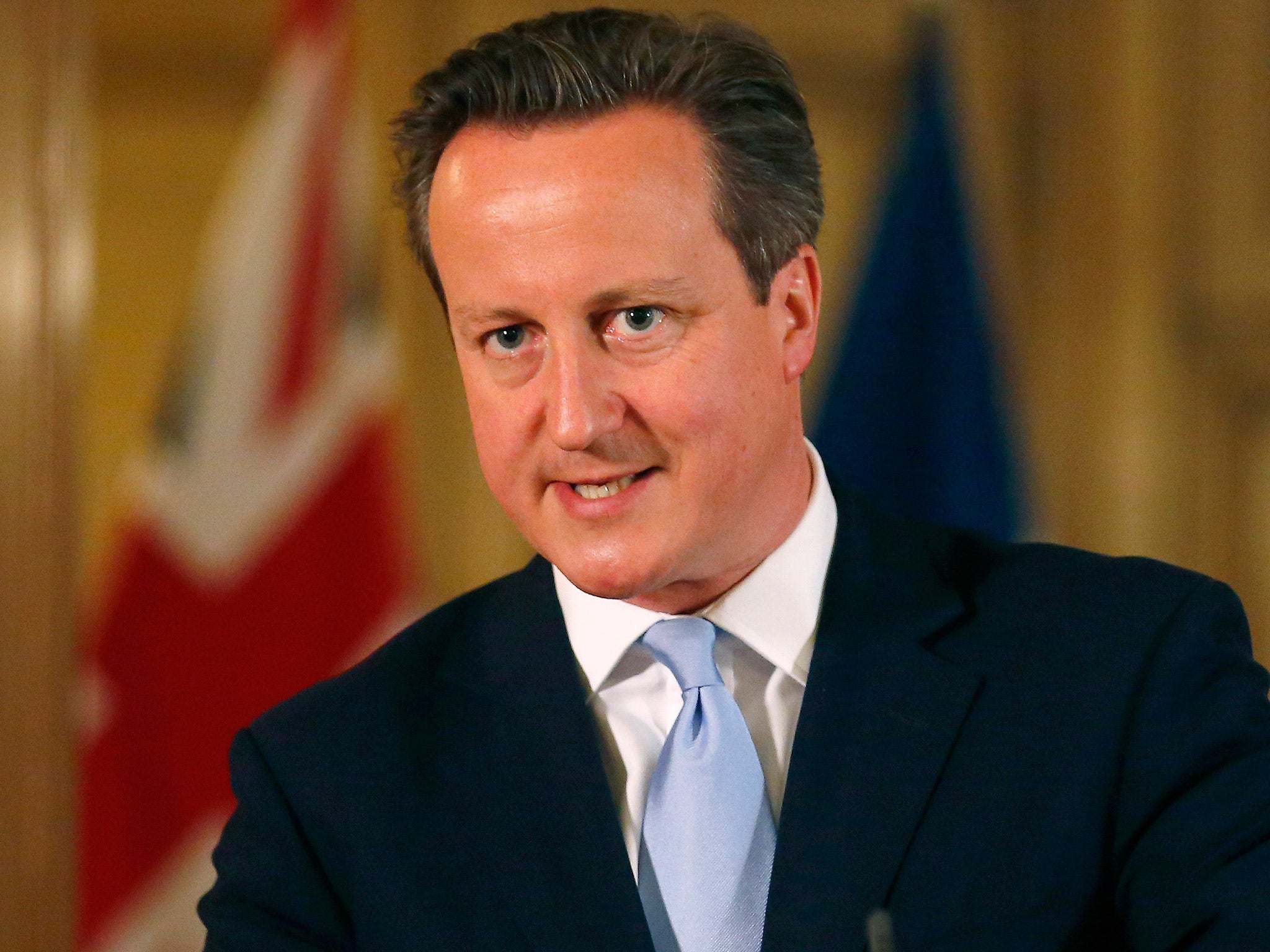David Cameron: We won't treat Brits travelling to Syria and Iraq as potential Isis terrorists
69 suspected extremists have been arrested so far this year

David Cameron has rebuffed a call by Boris Johnson for Britons who travel to Syria and Iraq to be presumed to be potential terrorists until they are proved innocent.
Downing Street said the Government would redouble its efforts to counter extremism following the beheading of the American journalist James Foley but stressed that there would be no “kneejerk” reaction.
Mr Cameron’s spokeswoman said the security services and the police were not pushing the Mayor of London’s idea. She also ruled out another attempt to bring in the “snooper’s charter”, which would give the services the power to monitor emails and internet use and has been blocked by the Liberal Democrats.
But the pressure on the Government to act increased when Scotland Yard revealed there has been a five-fold increase in UK nationals travelling to Syria or Iraq for terrorism purposes since last year. It said 69 suspected extremists have been arrested so far this year who planned to travel to Syria or fund terrorism there.
Mark Rowley, an assistant chief constable, appealed to family members of potential UK terrorists to come forward. He said: "The biggest growth in Syrian-related investigations has occurred in London and the West Midlands. The growth of dangerous individuals poses challenges for policing, especially when nearly half of Syria travellers of concern were not known as terrorist risks previously. Hence, we appeal to the public to help identify for us aspiring terrorists - they may be about to travel abroad, have just returned or be showing signs of becoming radicalised."
Mr Rowley added that seizures of money which people had been trying to take out of the country to fund Syria-related terror activity had also doubled.
On Monday, Mr Johnson proposed an immediate change in the law to bring in a “rebuttable assumption” that people travelling to war zones without telling the authorities have done so for “terrorist purposes.”
He also called for jihadists to be stripped of their citizenship, despite warnings from ministers that such a move would be illegal.
Number 10 said the Prime Minister was focused on a "patient and resolute" response to the "generational challenge" posed by Isis. His spokeswoman said: "People who insist on travelling to Syria and Iraq will be investigated by the police and the security services. In certain circumstances the home secretary can now remove citizenship from naturalised Britons. But we need to be clear on what are the measures we are able to do and what do the police and the security and intelligence agencies – what are the measures they want in order to be able to tackle that? That should be driving the discussion."
Harun Khan, deputy secretary general of the Muslim Council of Britain, warned that the Government’s Prevent strategy to combat extremism had "failed" and was having a "negative impact". He told BBC Radio 5 that it alienated young Muslims and pushed them towards radical groups.
"Most young people are seeing this [as] a target on them and the institutions they associate with," he said. Many felt they would be viewed by authorities as potential terrorists if they went to mosques or joined other organised Muslim groups.
Join our commenting forum
Join thought-provoking conversations, follow other Independent readers and see their replies
Comments
Bookmark popover
Removed from bookmarks